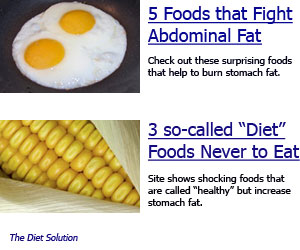

Natural compound in broccoli and Brussels sprouts halts breast cancer cell growth
Thursday, July 15, 2010 by: Sherry Baker, Health Sciences EditorSee all articles by this author
Email this author

|
Now scientists at the Ohio State University's Comprehensive Cancer Center at Arthur G. James Cancer Hospital and the Richard J. Solove Research Institute (OSUCCC-James) have even more good news about the health protective power of cruciferous vegetables. They've discovered that a substance in broccoli and Brussels sprouts specifically blocks the growth of breast cancer cells.
The new study, published online June 29th in the journal Cancer Prevention Research, involved laboratory and animal studies which revealed an important connection between the natural compound, dubbed indole-3-carbinol (I3C), and a molecule called Cdc25A that is necessary for cells to divide and proliferate. The Cdc25A molecule occurs at abnormally high levels in cancers of the breast, prostate, liver, esophagus, endometrium and colon, and in non-Hodgkin lymphoma; it is also elevated in other diseases, including Alzheimer's disease. The Ohio State researchers made the remarkable discovery that I3C found in broccoli and Brussels sprouts causes the destruction of Cdc25A -- and when that molecule is zapped, there's a sudden halt to breast cancer cell growth.
"Cdc25A is present at abnormally high levels in about half of breast cancer cases, and it is associated with a poor prognosis," study leader Xianghong Zou, assistant professor of pathology at the Ohio State University Medical Center, said in a statement to the media. "For this reason, a number of anti-Cdc25A agents have been identified, but they have not been successful for cancer prevention or treatment due to concerns about their safety or efficacy."
However, I3C is a natural component of broccoli and Brussels sprouts and is non-toxic. "I3C can have striking effects on cancer cells," Dr. Zou added, "and a better understanding of this mechanism may lead to the use of this dietary supplement as an effective and safe strategy for treating a variety of cancers and other human diseases associated with the overexpression of Cdc25A."
For their study, Dr. Zou and his research team added I3C to three breast cancer cell lines. The results? The natural veggie-derived substance caused the destruction of Cdc25A. The scientists also tested the effectiveness of I3C in breast tumors in lab mice specifically bred to develop breast cancer. When the vegetable compound was given orally to the animals, it reduced tumor size dramatically -- up to 65 percent.
Editor's note: NaturalNews is opposed to the use of animals in medical experiments that expose them to harm. We present these findings in protest of the way in which they were acquired.
Reposted From NaturalNews





2 comments:
hindi ko alam ito a. i was refrained from eating cruciferous vegetables because of my acid reflux. my doctor said these vegetables produce more acid that can upset stomachs.
thanks for sharing this post. God bless you and your family!
Hi Rossel,
Ang alam ko hindi naman nagko cause nang hyper acidity ang mga vegetables katulad nang broccoli at Brussels sprouts. Thanks for your visit and comments. God bless you all always.
Post a Comment